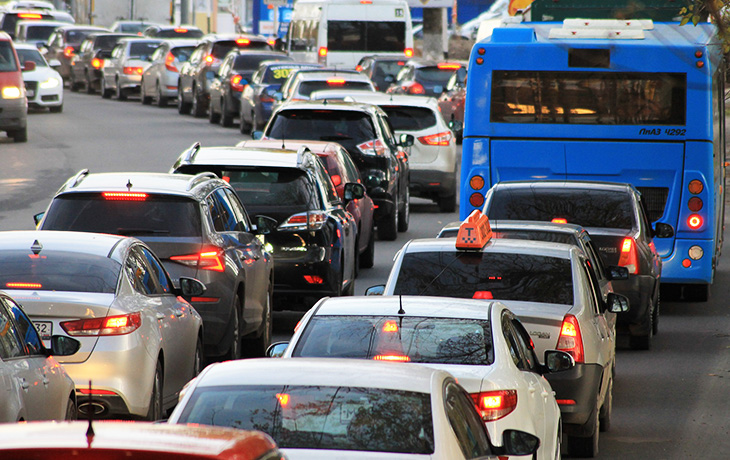A common and dangerous mistake people make when prepping is focusing too much on bugging out and thinking that you somehow choose ahead of time — before a particular emergency happens — if you’re going to bug in or bug out when the time comes.
Bugging in simply means sheltering-in-place, likely at home, while bugging out means leaving your home.
For example, we hear people say things like “I’m planning to bug out, so I don’t need to store two week’s worth of water at home.” Or any similar statement or line of thinking that sets this up as a predetermined choice. It’s especially a problem when people use that thinking as an excuse for not doing a core prep (eg. having water at home).
Don’t just do something, sit there!
One of the sane prepper rules is admitting and embracing that you don’t know what circumstances will be like during an emergency.
So how can you know ahead of time which location is the best place to ride out that emergency? You can’t.
Part of why this is a common mental trap is that people feel like they need to do something in a crisis. And bugging out often instinctually feels like the right act, especially because of media fantasies about SHTF.
But the data is clear: that impulse is usually wrong. That’s why we often hear local survival instructors repeat the line “don’t just do something, sit there!” as a memorable twist on the normal “don’t just sit there, do something!” expression.
And, if we’re being honest, history says that men are more likely to make this mistake than women. Even subconsciously, the primal desire to act can override logic.
Your home is always the default choice of where to ride out an emergency — you would only bug out if the merits of leaving overruled that stay-at-home default.
That means you have to prep for both staying at home and being away from home. If you can only handle one or the other, you are not prepared.
Even if your home-life situation isn’t that great, your home is the best choice because:
- You have a right to be there.
- That’s where all of your supplies are; both preps and normal-life stuff. It’s usually impossible to bring as much with you on the road as you can have stored at home.
- You know the neighborhood, nearby resources, escape routes, etc.
- Community matters in most emergencies, so you may as well stay where you already know and trust people, and they know and trust you.
- You usually have a right to use lethal self defense in your home. When you’re away from home, most laws have a much higher bar for when lethal force is allowed because you’re no longer in your own castle.
- You know the ins and outs of the house, in case you need to hide yourself or something valuable, improvise something new, break furniture for firewood, etc.
- It’s one of the surest ways for other people to find or contact you when the grid is down.
- There could be a scenario where bonafide residents are evacuated, vaccinated, and so on before ‘visitors’, so you might have a home-field advantage.
- There are fewer unknowns about surviving at home than surviving at another location. You know what your countertop water filter system is capable of handling, for example, rather than trying to guess the capabilities of a filter you find or make in the field.
You would only make the choice to leave or stay away from home (if caught away from home when an emergency hits) when there is a specific and meaningful reason to.
Examples of good reasons to leave or stay away
- Something known and acute is coming, such as a Category 5 hurricane that’s three days away from landing on your doorstep.
- Your house is physically unsafe, like in the aftermath of a natural disaster that shook, burnt, or flooded your home.
- Someone is specifically targeting you (eg. a domestic violence situation), and being away from home makes you safer.
- The critical supplies you had at home are gone, and you can’t find any more after scouting the nearby area.
- Civil unrest is happening within a block or two and the mob is already looting or being violent.
- An earthquake happens while you’re at work, and you’d have to cross through super-dangerous areas to get home.
- You have to get to a FEMA camp because government broadcasts specifically told you to leave because no help was coming.
“How do I know when it’s time to bug out?” is a common question without a good answer. The real answer is to follow the mental framework in this guide, combined with good situational awareness and judgment.
The desire for a universal answer or checklist makes sense — it would remove a lot of ambiguity and risk from this decision if you could just follow a 1-2-3 framework. But things don’t work that way.
A common example people talk about is when first responders, healthcare workers, or government officials stop showing up for work. While that’s a great sign that SHTF, it doesn’t necessarily mean it’s time to bug out.
The opposite can happen too, where people are stubborn and don’t leave when they should. If government officials specifically tell you to leave, it’s probably a good idea. There are too many stories of people burying their head in the proverbial sand, staying home when it’s clear they should’ve bugged out. It’s also selfish, since those people are now depending on others to come save them for a preventable problem.
This is true even for major SHTF events
Even in extreme events, such as first contact with aliens or a Jericho scenario where nukes go off nearby, you don’t necessarily want to grab your bag and go. If you’re in the radiation zone or alien invaders are coming down your block zapping everything in sight with ray guns, then sure, leave. But there could be plenty of circumstances in those same events where staying put is better than leaving.
Imagine you live in New York City and there’s a sudden pandemic that’s super contagious and kills everyone it touches — a real I Am Legend or World War Z type scenario. It’s reasonable to think “being in a dense city full of people is dangerous, I should leave!”
Ideally you’ve prepared well and could easily lock yourself in your apartment for at least a few weeks. Isn’t that inherently safer than going outside, where you run a big risk of bumping into other people and don’t know if where you’ll end up is as safe and well-stocked as your own home? After all, millions of other people in the city are likely doing the same thing by running for the hills.
Two specific examples of when you might then choose to leave that NYC apartment in this scenario:
- The disease is known to transmit through the air in such a way that, even though you’re locked inside your home, you’re still too likely to catch it through the shared air ducts.
- You can act early, where you learn about the incoming pandemic before things get out of hand locally and you have a known safe location to go to and you’re confident in your ability to get there before things get crazy on the road.
Bug out locations are spots that advanced preppers pick and even supply ahead of time. That way, if they do need to suddenly leave a place like NYC, they have a stocked spot to go to instead of just winging it.
That’s fine, but it’s another honey pot that can lead you astray. Having a BOL might make things more tempting to leave that NYC pandemic scenario — “I have an isolated and well-supplied place to go!” — but it doesn’t change the dangers you’d face between leaving home and getting there. What happens if the road to the BOL is no longer safe or viable, and now you’re stuck away from home?

